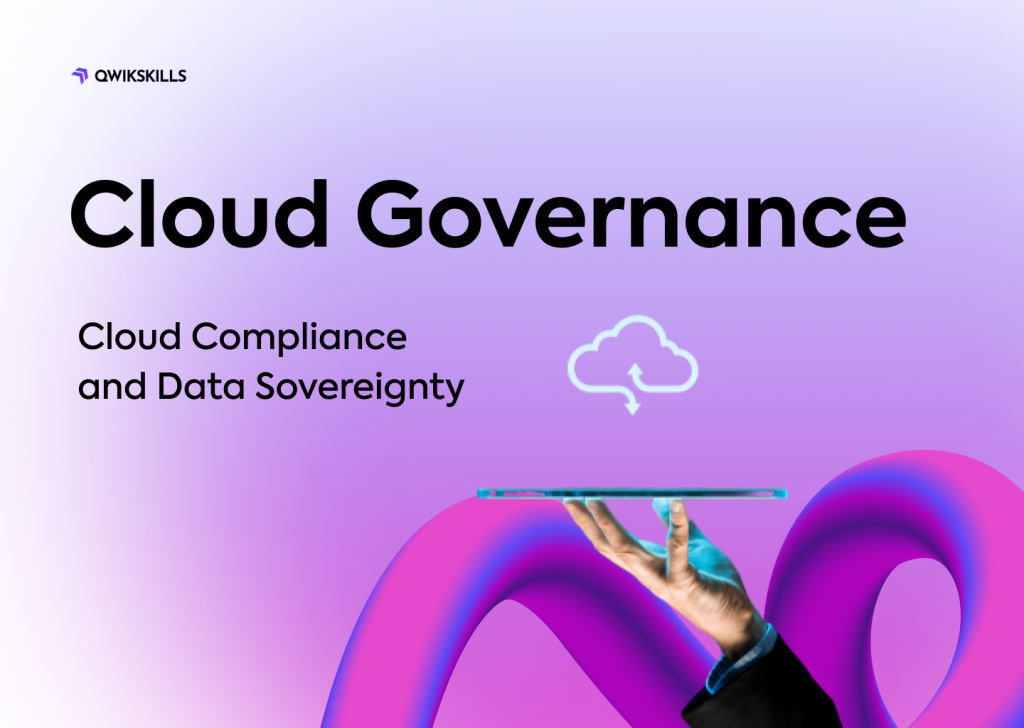With businesses looking to digitally transform their operations and move towards a more agile and dynamic work structure, the demand for careers in cloud computing is on an all-time high. Cloud computing plays a pivotal role in shaping the tech infrastructure for users and businesses, and it would be impossible to imagine a remote working scenario without cloud technology.
If you notice, you will see the application of cloud technology in your everyday lives, from streaming music online, watching movies on OTT platforms to using cloud servers to share your documents and files. With the exponential rise in cloud technology, the need for cloud experts is on a steady rise. There are various jobs that one can take up in the field of cloud computing. We will explore the different opportunities that this field offers, along with the roadmap to obtain the expertise to excel in it.
What is cloud computing?
Simply speaking, cloud computing refers to any service that uses the internet to deliver, access, store, process, and analyze data and software. Most enterprises, and users irrespective of their field, are using cloud technology in their daily lives in some form or the other. Various cloud providers outsource cloud services allowing users to migrate from traditional hardware systems to a hybrid or fully digital cloud IT framework. Here are a few popular cloud providers that dominate the cloud industry:
- Amazon Web Services
- Microsoft Azure
- Google Cloud
- Salesforce
- SAP
- Alibaba Cloud
- VMWare
- IBM Cloud
- Oracle
Why choose careers in the cloud-compting industry?
- High compensations: Careers in the cloud are in high demand. In India alone, there will be a demand for over a million jobs in cloud computing. In order to meet these demands, companies are willing to offer highly competitive salaries to professionals to encourage professionals to sign with them.
- Various growth opportunities: While money can be a great motivator. Job satisfaction helps retain an interest in a career. Since cloud computing is consistently evolving and expanding, it offers a great tool for personal development and upskilling for professionals in this field. You can freely explore various career paths within the cloud and keep upskilling yourself to increase your expertise.
- High job security: While most careers are at a threat of going redundant due to automation, the need for cloud professionals is directly in the interest of automation. 78% of Google Cloud certified individuals report feeling more confident in their professional future. Cloud computing is pivoting digital transformation across enterprises. Certification in this field secures your job, as these skills are necessary for successfully transitioning to this change.
- High Impact: Want to make an actual difference with your work? A job in cloud computing can help you achieve this. Did you know that up to 71% of Google Cloud certified individuals report that becoming certified enabled or will enable their employer to get more business, increase work with existing customers, or help scale up their business? Cloud computing is the driving force of digitally transforming enterprises. They play a huge role in helping businesses evolve and sustain today’s economy and are a huge factor in scaling the economy. Be a part of this high-impact field by gaining your certification today.
What are the best 7 top careers in cloud computing?
Everyone using the cloud for almost everything on the internet nowadays, opening up the door to a wide array of jobs in the IT sector. We have rounded up the most popular jobs in the field. While each company might have a few differences in the job descriptions they post and the title they give you, these broad career paths define the majority of the job roles out there for individuals considering a profession in cloud computing:
- Cloud architect: Cloud architects design the framework within which all the technology operates. They essentially plan the entire cloud strategy for an enterprise, making decisions on how the frontend and backend of their cloud systems will work. Their role defines how smoothly the whole operation will run and is a deeply valuable and technical position. Cloud architects must be able to deliver functionality, along with a good user experience. In addition, cloud architects need to identify businesses goals and problems and communicate these solutions through a secure and well-budgeted infrastructure. The professional Cloud Architect certification was the highest paying certification of 2020 and 2019, making it a highly rewarding role.
- Cloud automation engineer: One of the biggest benefits of using the cloud lies in its accessibility. Users can remotely access, transfer and share data with one and another. However, it does not stop there. Cloud services have made it possible for enterprises to seamlessly integrate their systems and software to automate tasks that would otherwise take much manual effort. APIs and automation have made it possible to create a more dynamic and robust workflow for individuals and enterprises across the globe. They have also created a demand for cloud automation engineers! Cloud automation engineers build, test, and implement automation technology that helps users automate their workflows by leveraging the cloud infrastructure.
- Cloud Security Analyst: Data privacy and security are among the most prime concerns for users when thinking about having their information stored on a cloud server. Cloud servers are responsible for storing sensitive data, including trade secrets and personal information that no individual or enterprise would want leaking out. Cloud Security Analysts work hard to mitigate the risks by identifying potential threats and weak links in the infrastructure. They are also in charge of providing solutions that can help make the network more secure and resilient towards such threats.
- Cloud consultant: These are typically cloud experts that possess a broad knowledge of cloud technology, tools, and the job roles within cloud computing. They provide companies with advice on the software, devices, and tools they require to transition to the cloud. This job role requires understanding its technical requirements and the skill to match them within its budgetary limitations. In addition, they work on designing the policies to migrate a company’s system to the cloud. They hence need to have a strong foundational understanding of how different cloud providers work.
- Cloud developer: Heavily involved in product development, cloud developers deal with building the frontend and backend systems by using native cloud development techniques. They need a strong foundational knowledge of all cloud service offerings to make the most out of running software on a serverless system. This job role involves deploying, monitoring, running, and scaling cloud software.
- Cloud software engineers: These are programmers with a background in computer sciences. Cloud engineers develop software that operates in the cloud. They help with upgrading, repairing, and maintaining the software they build and managing the database that the cloud software uses.
- Data Science Engineers: This is a highly specialized role that identifies data traffic and builds solutions that result in higher traffic for the organization. This role requires individuals to know data analysis and expertise in big data and programming abilities.
How to build a career in the cloud computing space?
By this point, we have already established that cloud careers are in high demand and offer a wide variety of benefits like high pay, versatile career choices, job security, and immense growth potentials.
Now how does one go about securing a career in the cloud space? Is it necessary to have a degree in engineering? Do you need a four-year diploma or years of experience to get started? Where does one begin?
If any of these questions have popped up in your mind, do not panic! Instead, we have listed down a few guiding points to help you navigate into the world of cloud computing as a professional:
- Get familiar with the world of cloud computing: You do not necessarily need a degree in engineering to get started, but you do need much heavy reading to familiarise yourself with all the different jargon, technical nuances, and platforms associated with cloud technology.
- Understand the fundamentals of cloud computing: Irrespective of the platform you choose to specialise in, you need to have a strong foundational base of how cloud computing works to succeed. You should be aware of what terms like platform as a service (PaaS), functions as a service (FaaS), and infrastructure as a service (IaaS) mean.
- Work on your skills: Cloud computing, as we discussed, is a broad field, find the area that interests you the most, and work towards developing a strong skill set in that area. For example, you cannot be a cloud programmer without knowing how programming languages work similarly; to excel in cloud automation, one needs to have a strong skill set in dealing with automation tools.
- Level up with certifications: There are many certifications offered by providers like Google Cloud, Amazon Web Services, and Microsoft Azure, to name a few, that you can apply for to validate your expertise. These certifications help boost your CV and provide you with direct leverage to apply for jobs with these companies. If you need any help in picking the right certification for yourself, click here.
QwikSkills also provides a comprehensive platform to help you ace your certification tests. With an expansive library of practice tests curated by experts, the QwikSkills platform recreates the test experience and helps you gauge your level of preparedness.
Cloud computing is a growing space in the tech industry that is probably developing as you read this article! For example, 28% of all certifications earned in 2020 were in cloud computing; this is a 164% growth compared to the previous year. Our point being, this space is consistently growing, and it offers immense growth and diversity in terms of career options.
We hope this article helped you gain some clarity on the different jobs that are available in the cloud computing space. Feel free to reach out to our team at hello@qwikskills.com if you have any questions regarding the certifications and resources needed to land a job in the cloud computing space.



